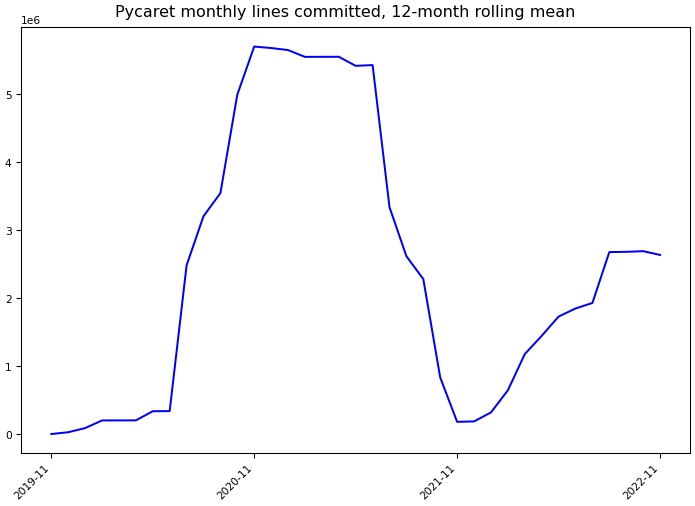PyCaret¶
PyCaret is a “low code” library for machine learning, including AutoML and experiment tracking functionality. It covers a very wide range of ML-related talks and has modules for clustering, regression, classification, anomaly detection, NLP, association rule mining, and time series analysis.
Logo |

|
|---|---|
Website |
|
Repository |
|
Byline |
An open-source, low-code machine learning library in Python. |
License |
MIT |
Project age |
3 years |
Backers |
Personal Project (Creator and maintainer) |
Lastest News (2021-04-28) |
Release 2.3.1 2.3.1 is a minor release including fixes for CuML wrapper pickleable and exceptions when using Ridge and RF estimator. … more |
Size score (1 to 10, higher is better) |
8.5 |
Trend score (1 to 10, higher is better) |
8.0 |
Education Resources¶
URL |
Resource Type |
Description |
|---|---|---|
Documentation |
Official project documentation. |
|
https://towardsdatascience.com/predict-lead-score-the-right-way-using-pycaret-332faa780cfc |
Blog |
The blog is written by the creator of the PyCaret project, Moez Ali. This blog is using a lead generation example to walk you through how to use PyCaret. |
Git Commit Statistics¶
Statistics computed using Git data through November 30, 2022.
Statistic |
Lifetime |
Last 12 Months |
|---|---|---|
Commits |
60,475 |
10,079 |
Lines committed |
102,140,754 |
31,607,018 |
Unique committers |
110 |
52 |
Core committers |
12 |
13 |

Similar Projects¶
Project |
Size Score |
Trend Score |
Byline |
|---|---|---|---|
8.25 |
6.75 |
Transformers: State-of-the-art Machine Learning for Pytorch, TensorFlow, and JAX. |
|
9.25 |
8.5 |
An open source platform for the machine learning lifecycle |
|
8.5 |
5.5 |
A Python module for machine learning built on top of SciPy and is distributed under the 3-Clause BSD license. |
|
7.5 |
5.25 |
Open Source Fast Scalable Machine Learning Platform For Smarter Applications: Deep Learning, Gradient Boosting & XGBoost, Random Forest, Generalized Linear Modeling (Logistic Regression, Elastic Net), K-Means, PCA, Stacked Ensembles, Automatic Machine Learning (AutoML), etc. |
|
7.0 |
6.0 |
A unified framework for machine learning with time series |
